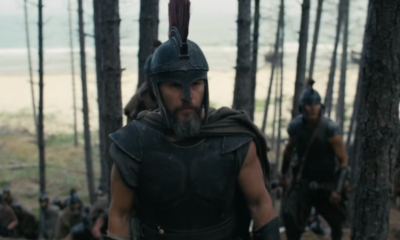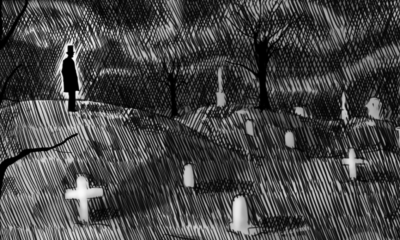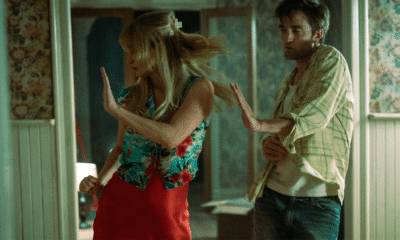Book Adaptation
James Cameron’s Ghosts of Hiroshima : His Most Ambitious and Controversial Project Yet
Unlike Avatar, which allowed James Cameron to escape into a fantastical world of vibrant ecosystems, Ghosts of Hiroshima will be a deep dive into one of history’s darkest chapters.
James Cameron, the visionary filmmaker behind Avatar and Titanic, is taking on what he calls “the most challenging film” of his career with Ghosts of Hiroshima. Based on Charles R. Pellegrino’s newly published book, the World War II epic will recount the devastating bombings of Hiroshima and Nagasaki through the eyes of Japanese survivors — a perspective rarely explored in Hollywood.
Set to begin filming in 3D, James Cameron aims to create an immersive, almost unbearable visual experience that confronts audiences with the raw, human cost of nuclear warfare. Speaking to Discussing Film, James Cameron admitted, “I’m actually afraid of this movie in a way,” emphasizing the weight of responsibility he feels in portraying such a harrowing subject with honesty and sensitivity.
Unlike Avatar, which allowed James Cameron to escape into a fantastical world of vibrant ecosystems, Ghosts of Hiroshima will be a deep dive into one of history’s darkest chapters. James Cameron noted that while previous war films have tackled the atomic bomb, many, including Christopher Nolan’s Oscar-winning Oppenheimer, have avoided addressing the full moral and human implications of the event. “I want to go straight at the third rail,” James Cameron said, critiquing what he called Oppenheimer’s “moral cop-out.”
James Cameron’s decision to film Ghosts of Hiroshima in 3D is a bold one, setting the stage for a visceral cinematic experience akin to Christopher Nolan’s Dunkirk or Sam Mendes’ 1917, but with an even more emotionally charged purpose. The director aims to “make it as real for you as I can,” using 3D not as a gimmick but as a storytelling tool to immerse viewers in the survivors’ harrowing realities.
The project is set to follow James Cameron’s completion of Avatar 5, marking a significant shift from the science fiction realms he’s become synonymous with. However, the thematic ambition of Ghosts of Hiroshima aligns with Cameron’s long-standing commitment to using cinema as a platform for moral reflection. From Titanic’s intimate portrayal of human tragedy to Avatar’s environmental advocacy, Cameron has always infused spectacle with a more profound message.
View this post on Instagram
Ghosts of Hiroshima also represents a rare instance of a major Hollywood director tackling the atomic bombings from a non-Western viewpoint, an effort Cameron feels morally compelled to undertake. “I don’t 100% have my strategy fully in place for how I want to shield people from the horror, but still be honest,” he admitted, acknowledging the emotional tightrope he must walk in telling this story.
Given James Cameron’s track record for pushing technological boundaries while delivering deeply human narratives, Ghosts of Hiroshima could emerge as a landmark film that redefines how war stories are told on screen.
With production underway and anticipation building, the world awaits to see if Cameron can once again elevate cinema to new emotional and visual heights.



































































Pingback: Japan Remembers Hiroshima—But Is It Quietly Preparing for War?
Pingback: "Living in Sci-Fi”: James Cameron's Struggles with New Terminator
Pingback: James Cameron Calls Out The Academy Over Dune Snubs